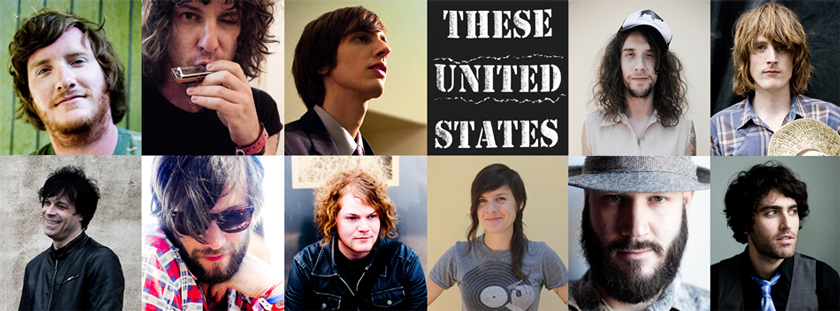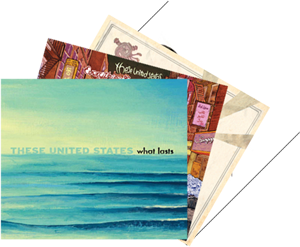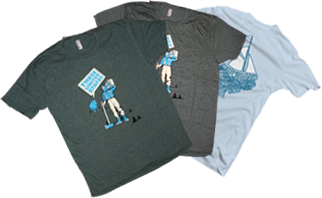The weekly babbling brook of consciousness — music, videos, writings, projects, and people — that keep the lads at TUS tapping out tunes of their own.
This week, J. Tom Hnatow’s thoughts on authenticity in music…

 It seems somehow appropriate that folklorist Alan Lomax’s birthday and the release of the record by endlessly buzzed-about singer Lana Del Rey occurred on exactly the same day this week. These seemingly disparate occurrences warrant a discussion on “authenticity” in the continuum of music.
It seems somehow appropriate that folklorist Alan Lomax’s birthday and the release of the record by endlessly buzzed-about singer Lana Del Rey occurred on exactly the same day this week. These seemingly disparate occurrences warrant a discussion on “authenticity” in the continuum of music.
It is only with the invention of recorded media that the distinction between “performer” and “performance” becomes relevant. A performer might play a character or persona onstage – but pre-phonograph, the performer is tied to that performance. Once they stop performing…the performance ceases to exist.
With the invention of recording technology, things get a bit fuzzier. A performer was able to be separated from a recording, both in space and time. Most of us have never even met or seen a performance of the artists whose music we love. We can have favorite artists who were long dead before we were even born.
As a result, our perceptions of who the artist was – or should be – get strangely warped. For example, as Hilary Moore writes in “Inside British Jazz” – The “trad” British Jazz bands of the 50s, as a result of only knowing their beloved 1920s and 30s New Orleans Jazz through poorly recorded 78 records, would faithfully imitate the ‘distorted instrumental balance and faulty intonation’ of the music in their own performances.
In America, the Folk Revival of the 1950s (http://en.wikipedia.org/wiki/American_folk_music_revival) learned much of their music from Alan Lomax’s field recordings of the 30s and 40s. As a result, their view of what Folk music was “authentic” generally included only acoustic instruments, since it was mostly recorded pre-electric guitars. Big Bill Broonzy, one of the many blues artists recorded by Lomax, was an accomplished composer, had recorded electric guitar as early as 1942, and had a small jazz/blues combo of his own. But when he realized that the (very profitable) Folk Revival wanted a solo acoustic bluesman…he became one.
According to music historian Robert Palmer, Broonzy “…played the role of the folk bluesman fresh from the cotton fields to the hilt.”
Is there ultimately much of a difference between Broozy re-branding himself as an acoustic guitar slinging bluesman and Elizabeth Grant, a.k.a. Lana Del Rey rebranding herself as a major label artist? Why is pop music a medium where “authenticity” seems to matter so much to the consumer? As Sasha Frere-Jones points out, “no movie review begins, “Meryl Streep, despite not being a Prime Minister, is reasonably convincing in ‘The Iron Lady.’”
Big Bill Broonzy “Key to the Hightway”
[youtube=http://www.youtube.com/watch?v=KN_f0WVsHuw]
Lana Del Rey “Video Games”
[youtube=http://www.youtube.com/watch?v=HO1OV5B_JDw]
As nostalgia theorist Fred Davis observes, it is only the passage of time that transformed ‘the tinny, Victrola-squelched jazz band sounds of the 20s’ from signifying ‘the tawdry and dissolute’ to evoking a bygone spirit of sprightly merriment, as in Woody Allen’s movies. (Simon Reynolds, Retromania)
In 50 years, once all the arguments are forgotten and all that remains is the music…who can say what will be said of current artists like Lana Del Rey? When asked about his “authenticity”, Broonzy’s standard reply was: “I guess all songs is folk songs. I never heard no horse sing ’em.” Ironically, the quote is also attributed to Louis Armstrong and Woody Guthrie.
![]()

 It seems somehow appropriate that folklorist Alan Lomax’s birthday and the release of the record by endlessly buzzed-about singer Lana Del Rey occurred on exactly the same day this week. These seemingly disparate occurrences warrant a discussion on “authenticity” in the continuum of music.
It seems somehow appropriate that folklorist Alan Lomax’s birthday and the release of the record by endlessly buzzed-about singer Lana Del Rey occurred on exactly the same day this week. These seemingly disparate occurrences warrant a discussion on “authenticity” in the continuum of music.




